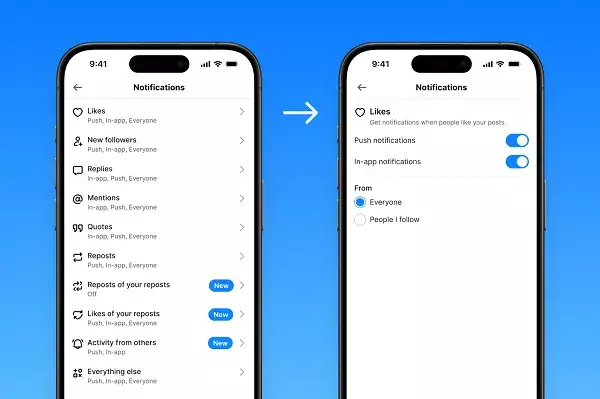In the rapidly evolving world of social media, platforms like Bluesky emerge with the noble aspiration of decentralization, autonomy, and enhanced user control. These ideals are fundamentally appealing, especially to those disillusioned by the opaque algorithms and intrusive data practices of giants like X (formerly Twitter) and Meta’s Threads. However, beneath the surface of this idealistic veneer lies a stark reality: the decentralized model, while intellectually appealing, is fundamentally misaligned with the core drivers of user engagement.
Decentralization promises a shift away from centralized control—yet it comes at the cost of simplicity. Users crave straightforward ways to connect, share, and stay informed. The ideological appeal of giving users more power over their data and experience is noble but misses the mark in terms of practical adoption. The truth is, most people prioritize ease and immediate gratification over philosophical purity. What decentralization risks—complex onboarding processes, fragmented communities, and inconsistent user experiences—are often enough to turn users away, especially when easier options exist elsewhere.
Bluesky’s attempt to carve a niche by emphasizing user autonomy is admirable, but it inadvertently exposes its fragility. By focusing on incremental features like customizable notifications, it seems to chase after Twitter’s familiar terrain rather than forge a new path. These superficial tweaks cannot substitute for a revolutionary experience that truly differentiates the platform. Without offering compelling incentives for users to abandon well-established ecosystems, Bluesky remains a niche experiment, resisting the mainstream tide driven by convenience.
Feature-Mimicry vs. Genuine Innovation: A Fool’s Gambit
The recent updates to Bluesky—particularly its more granular notification controls—highlight an ongoing strategy: imitate successful features from competitors to appear relevant. But this approach, rooted in superficial mimicry, lacks the foundational innovation necessary to disrupt entrenched platforms. Users don’t just want features; they want a seamless, intuitive experience that integrates flawlessly into their daily routines.
Offering more control over notifications sounds appealing in theory. Users could tailor their online attention, blocking spammy alerts or noisy updates. Yet in practice, most users are overwhelmed by options, preferring to stick with default settings rather than tinker with complex configurations. This pattern reveals a critical truth: complexity kills engagement. When features require effort to manage, they risk becoming burdens rather than benefits.
The broader social media ecosystem already has established standards—Twitter’s notification system, Instagram’s ease of engagement, TikTok’s addictive feed. Bluesky’s attempt to replicate these features without innovating around the user experience ensures it remains secondary. Without clear, engaging reasons to switch, users will default to platforms that maximize simplicity and minimize effort. This gap underscores that superficial feature addition will never compensate for a lack of authentic, compelling innovation.
Convenience vs. Control: The Central Dilemma of Social Media
One of the most telling contradictions in contemporary social media is the tension between users’ desire for privacy and their reliance on convenience. Modern consumers are increasingly aware of data misuse and surveillance, fueling a craving for platforms that offer genuine control. Yet, this desire often conflicts with their habits—quick, effortless interactions are preferred over deliberate, privacy-preserving behaviors.
Platforms like Mastodon and similar decentralized networks have tried to capitalize on this shifting mindset. But their complex onboarding, server selection, and community fragmentation have limited appeal for the average user. Conversely, Meta’s Threads leverages the existing Instagram ecosystem, sidestepping many hurdles and offering a frictionless transition. The lesson should be clear: ease of access and integration trump the ideological purity of decentralization.
Bluesky’s emphasis on user empowerment through features such as notification controls is a step in the right direction. Still, it risks being a half-measure. If the core experience remains cumbersome and disconnected from established habits, it will struggle to grow beyond a niche audience. The market rewards platforms that can provide privacy and control without sacrificing the effortless interaction—that balance remains elusive but essential.
The Consequences of Missing the Larger Market Opportunity
Despite its admirable principles, Bluesky seems to be trapped within a narrow conceptual framework: that decentralization and user empowerment alone will drive mass adoption. This oversimplification ignores the fundamental reality that most users are driven by practicality over ideology. Offering more controls without improving user experience or engagement potential is an exercise in idealism.
The social media landscape is fiercely competitive, and platforms that succeed know how to combine innovation with simplicity. TikTok’s algorithm, Instagram’s seamless interface, and Meta’s integration across products demonstrate that convenience is king. Until Bluesky incorporates features that are intuitively accessible and deeply engaging, it will remain relegated to technical enthusiasts and privacy advocates rather than a mainstream phenomenon.
What the platform truly needs is a radical rethink—an entirely new interaction model that marries user control with effortless use. Perhaps multimedia integration, community-centric features, or intelligent content curation that adds real value to users’ daily routines. Absent these innovations, Bluesky risks being dismissed as an ideological experiment rather than a serious contender.
The Future of Social Media: A Delicate Balance
The ongoing tug-of-war between control and convenience defines the future of social media. Users want privacy, but they value their time and ease of use even more. Platforms that can harmonize these competing priorities will gain dominance. For now, Bluesky is far from achieving this equilibrium. Its incremental updates and focus on mimicking existing features reveal a platform still hesitant to challenge the status quo.
In a landscape where giants like Meta and X have mastered the dance of innovation and convenience, smaller players like Bluesky must challenge their limitations. Abstract principles—decentralization, privacy, user empowerment—are admirable, but without aligning with everyday user priorities, they remain theoretical ideals. To succeed, Bluesky and similar platforms must embrace a pragmatic approach—one that recognizes that true user loyalty hinges on offering both meaningful control and effortless engagement.
Until this crucial balance is struck, the social media arena will remain dominated by those who understand that innovation is not merely about adding features but about creating experiences that resonate on a fundamental, emotional level.









Leave a Reply